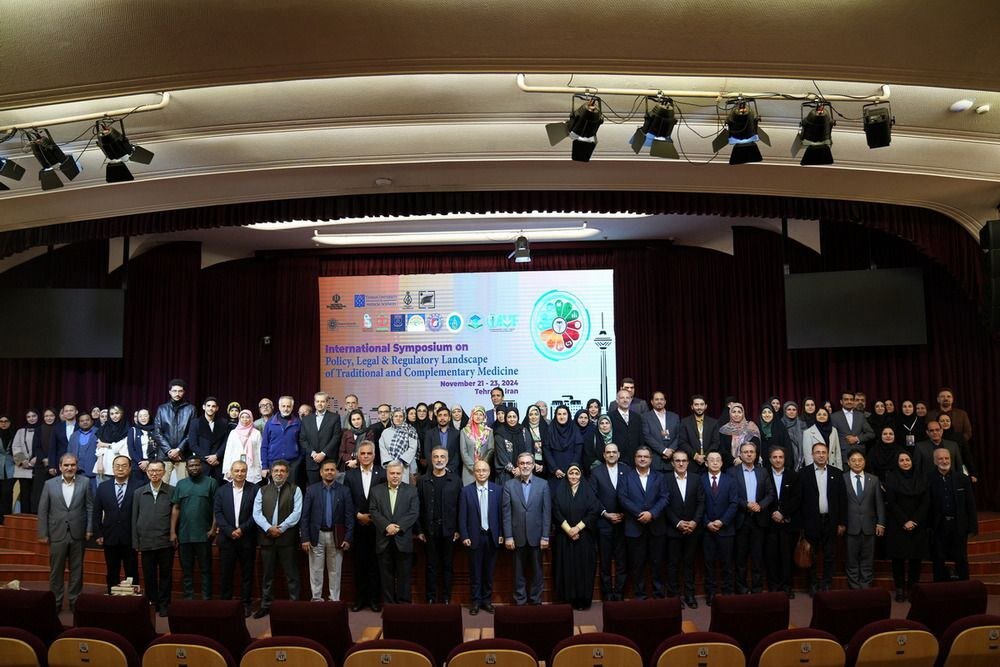Tehran hosts intl symposium on traditional complementary medicine
Tehran hosts intl. symposium on traditional, complementary medicine
TEHRAN –The international symposium on the policy, legacy, and regulatory landscape of traditional and complementary medicine was held from November 21 to 23 in Tehran.

The symposium was held in person and online. By holding five specialized panels, the event served as a platform where experts from different Asian, European, American, and African countries discussed their views on traditional medicine.
Training and higher education in traditional and complementary medicine; integration of traditional and complementary medicine in the health care system; and laws and regulations in standardization and provision of traditional and natural products were among the main topics of the event.
The event provided a platform to boost communications, discuss, and share global experiences on traditional medicine laying the ground for integrating traditional and complementary medicine into the healthcare system, the health ministry website reported.
“It is essential to establish and implement policies, regulations, and legislations to be able to integrate traditional and complementary into the healthcare system,” the health ministry’s website quoted Arman Zargaran, an advisor to the traditional medicine office at the Ministry of Health, as saying.
The symposium can help figure out the best strategies to address challenges in integrating traditional medicine into the healthcare system, as well as ways to expand it, he further noted.
Health maintenance, disease prevention
Iranian traditional medicine strongly focuses on prioritizing health maintenance and disease prevention over treatment.
It is one of the most ancient forms of traditional medicine. It is grounded in the concept of four senses of humor: phlegm (Balgham), blood (Dam), yellow bile (Safra’), and black bile (Sauda’). The concept of the four senses of humor is based on the teachings of Rhazes and Avicenna in an elaborate medical system.
So far, about 30,000 plant species have been identified in the world, with Iran’s share of about 8,000 species which is more than the whole of species found in Europe.
Persian medicine experts
Around 500 Persian medicine experts are providing health and medical treatment services across the country.
More than 1,000 general practitioners who have passed the Persian medicine courses approved by the health ministry are also offering services, Mehr news agency quoted Nafiseh Hosseini-Yekta, the director of the health ministry’s Persian medicine office, as saying.
Currently, nine faculties of Persian medicine enroll students in the country’s universities, she added.
Training Persian medicine experts has always been at the top of the Persian medicine office’s agenda. Therefore, different skill courses have been developed and held under the supervision of the health ministry.
On January 7, Hosseini-Yekta said surveys show that more than 80 percent of people in the country intend to benefit from Iranian traditional medicine, ILNA reported.
Traditional medicine has its roots in the culture, customs, and traditions of Iranians and has always been of interest to them, the official highlighted.
With over five hundred graduates in the field and numerous research articles that have been published, the country has been able to improve its position by being ranked fourth in the production of science in the field of traditional medicine in the world, following China, India, and the United States.
MT/MG
source: tehrantimes.com